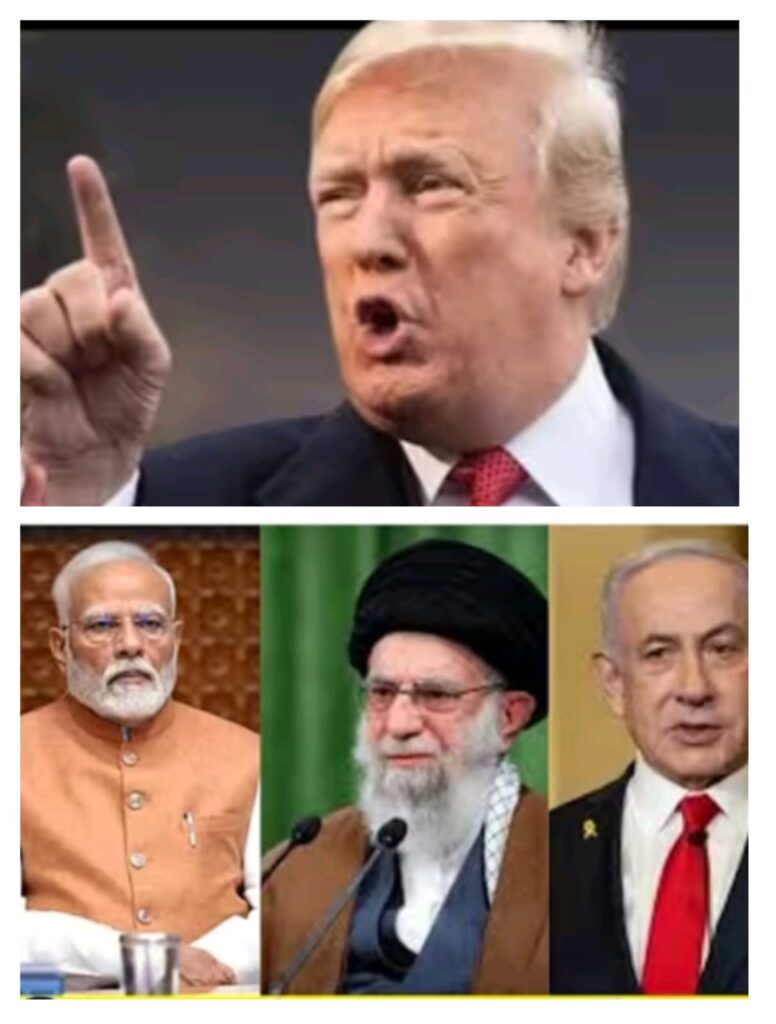
New Delhi: As tensions between Israel and Iran escalate following a targeted Israeli strike that killed senior Iranian military leaders and nuclear scientists, global markets and geopolitical alliances are showing signs of deep disruption. Among the countries likely to be worst hit by the fallout is India — due to its dependence on imported crude oil and the large Indian diaspora residing in the Gulf region.
JP Morgan, the global financial giant, has sounded an alarm that crude oil prices could surge past $120 per barrel if the conflict deepens. The spike, driven by fears of supply disruption from the Strait of Hormuz — a vital artery for global oil shipments — could have catastrophic effects on India’s energy economy. India, which imports nearly 85% of its oil needs, is extremely vulnerable to such market volatility.
In addition to the economic impact, more than 7.2 million Indians living in Gulf nations, including the UAE, Saudi Arabia, Qatar, and Kuwait, face direct and indirect consequences of the escalating hostilities. Any instability in the region could jeopardize their livelihoods, remittances, and safety — all of which are critical to India’s socio-economic balance.
Experts have also expressed concern over the role of global powers, particularly the United States, in exacerbating the situation U.S. President Donald Trump has publicly supported Israel’s aggressive stance, calling it a necessary response to what he termed “Iran’s unchecked nuclear ambitions.” However, many international analysts argue that the Israeli offensive may have crossed a red line, inviting retaliation from Iran and threatening wider regional conflict.
Prof. Aftab Kamal Pasha, former Chairman of Gulf Studies at Jawaharlal Nehru University in New Delhi, strongly criticized Israel’s actions. “Israel is behaving no differently than Pakistan when it comes to following the diktats of global powers like China,United States, and Turkey,” he said. “It has become a strategic stooge, and its unilateral actions are endangering the entire Middle East.” Prof. Pasha also stressed that the Indian government must rise to the occasion and leverage its long-standing ties with both Israel and Iran to help defuse the conflict diplomatically.
India, which has historically balanced its strategic partnerships with both the countries, now finds itself at a crucial crossroads. While New Delhi enjoys robust defense and technological ties with Israel, it also shares deep cultural, economic, and energy-related relations with Iran. Over the years, India has invested in infrastructure and energy projects in Iran, including the Chabahar port — a key element of its regional connectivity strategy.
With the Gulf region already under strain from ongoing tensions in Yemen, Syria, and Iraq, any further instability could have ripple effects across South Asia and beyond. Diplomatic sources suggest that back-channel efforts are underway by multiple countries, including India, to urge de-escalation and avoid a full-blown regional war.
As the crisis deepens, the coming days will test India’s diplomatic agility, economic resilience, and strategic foresight — with implications not just for its energy security, but for millions of lives connected by the Gulf corridor.
(Writer is Senior Journalist and Political Commentator)





